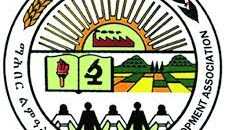April 7, 2024
The Global Society of Tigray Scholars and Professionals (GSTS) conducted a mission to Tigray from February 5 to 26, 2024. Today, on April 7, 2024, GSTS released a 22-page report summarizing the mission’s activities, including pre-mission preparations, consultations, and recommendations.
In the report detailing pre-mission virtual consultations and on-the-ground discussions in Tigray, the Global Society of Tigray Scholars and Professionals (GSTS) enumerated the entities it engaged with: “Tigray Political Parties (Baytona, Salsay Woyane, Wudib Natsnet, and Arena), Leaders of Tigray Defense Force (TDF)/Army, Representatives of Scholars & Professionals to TIA, Representatives of Tigrayan communities and CSOs in the Diaspora and Ethiopia, Tigray Scholars & Professionals in the Diaspora and in Ethiopia, Groups/Associations – Youth and Women Associations (in Tigray), Influential/Veteran Tigrayan Political leaders, Tigray Public Diplomacy, Gheraelta Institute, Representatives of IDPs and Refugees from Western Tigray, Representatives of IDPs from Sheket (Afar), Wounded TDF members, and Friends of Tigray conversant in Tigray’s politics across the world. In addition, opinions from various Tigrayans of the general public in Tigray and the Diaspora were consulted prior to mission deliberation.”
It added, “unfortunately, despite repeated requests and scheduling, pre-mission meeting was not possible with TPLF (primarily due to its about two months of meetings).”
About the TPLF’s focus on internal power dynamics, manifested through prolonged closed-door meetings, the report said the move has led to neglect of urgent public issues in Tigray.
“Given the TPLF’s predominant presence in the Tigray Interim Administration cabinet and nearly all lower-level governmental bodies, its protracted and closed-door party meetings, spanning over two months, have prioritized internal power dynamics at the expense of critical pressing public issues such as safeguarding territorial integrity; the return of over one million internally displaced persons (IDPs) and refugees facing unpreceded suffering; continued large-scale human rights violations on Tigrayans in the illegally and forcefully occupied Tigray territories; famine; and commencing relief, recovery, and reconstruction efforts. This state of paralysis and disregard for pressing public issues has sparked public outrage and created a pervasive sense of despair and hopelessness among the Tigray population.”
It provided a list of what it called actionable recommendations including restoration of administrative and territorial integrity, and IDP and refugees resettlement; national reconciliation and salvation, and state and party separation.


